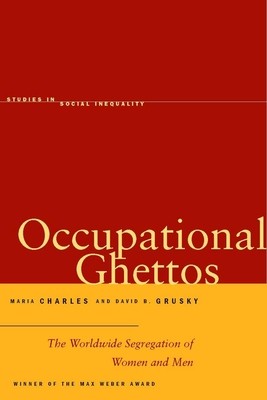
- We will send in 10–14 business days.
- Author: Maria Charles
- Publisher: Stanford University Press
- ISBN-10: 0804753296
- ISBN-13: 9780804753296
- Format: 15.9 x 23.5 x 2.2 cm, softcover
- Language: English
- SAVE -10% with code: EXTRA
Reviews
Description
The last half-century has witnessed dramatic declines in gender inequality, evidenced by the rise of egalitarian views on gender roles and the narrowing of long-standing gender gaps in university attendance and labor force participation. This development, while spectacular, has been coupled with similarly impressive forms of resistance to equalization, most notably the continuing tendency for women to crowd into female "occupational ghettos." This book answers the important questions: Why has such extreme segregation persisted even as other types of gender inequality have lessened? Why is segregation especially extreme in precisely those countries that appear most committed to egalitarian reform and family-friendly policies?
EXTRA 10 % discount with code: EXTRA
The promotion ends in 16d.21:30:33
The discount code is valid when purchasing from 10 €. Discounts do not stack.
- Author: Maria Charles
- Publisher: Stanford University Press
- ISBN-10: 0804753296
- ISBN-13: 9780804753296
- Format: 15.9 x 23.5 x 2.2 cm, softcover
- Language: English English
The last half-century has witnessed dramatic declines in gender inequality, evidenced by the rise of egalitarian views on gender roles and the narrowing of long-standing gender gaps in university attendance and labor force participation. This development, while spectacular, has been coupled with similarly impressive forms of resistance to equalization, most notably the continuing tendency for women to crowd into female "occupational ghettos." This book answers the important questions: Why has such extreme segregation persisted even as other types of gender inequality have lessened? Why is segregation especially extreme in precisely those countries that appear most committed to egalitarian reform and family-friendly policies?


Reviews